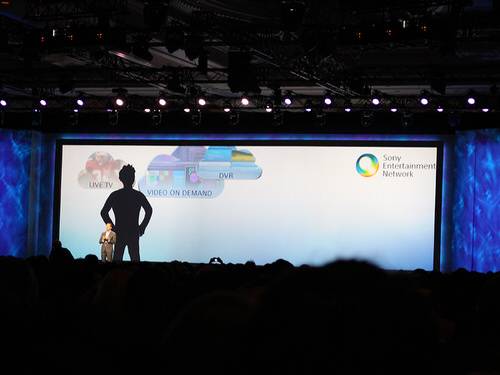
In many ways, Sony is more of a lifestyle brand than a tech brand. It creates products that allow people to have fun—from its flagship PlayStation 4 to televisions and audio gear to cameras and mobile devices. Yet it’s never managed to forge its diverse product lineup into an ecosystem that draws people in and keeps them there—the way, say, Apple has done.
So Sony is turning to the cloud in hopes of making the PlayStation the core of its entertainment universe. At the Consumer Electronics Show today, Sony unveiled its PlayStation Now, a new game-streaming service (based on technology from Gaikai, technology it acquired two years ago) that will let people play their PS games across a variety of Sony devices, starting with the PS4, the PS3 and the PS Vita. The latest models of Sony’s Bravia TV line should also support PlayStation Now.
See also: The Xbox One And The PS4 Kick Off A New Arms Race: Entertainment
Ultimately, Sony plans to expand the service to non-Sony tablets and other devices. It will allow users to play full games via Internet streaming, although the company didn’t release any details on pricing. The service will open up for a limited beta test in the U.S. at the end of January first before launching rental and subscription options sometime this summer, only in the U.S.
Sony also announced somewhat vaguer plans for a new cloud-based TV service that it said will offer live television programming and Netflix-style streaming video. Like other streaming services, the Sony offering will apparently work across a variety of connected devices, from game consoles to tablets. Sony executive Andrew House said the service will launch later this year, although he had no details on pricing or programming lineups—both of which will be key to its success.
How Sony will handle the clustered mess of entertainment rights and studio negotiations is anyone’s guess—especially when it comes to live TV. It does, of course, have one major advantage over many of its competitors, in that it owns a Hollywood movie and TV-production studio, and thus can presumably work out rights issues for Sony Pictures programming internally.
The company wants to offer “a single source of entertainment that’s less complicated and more accessible than ever before,” said CEO Kazuo Hirai. This has big implications for Sony’s business. These services represent a unifying strategy that will bring together many of Sony’s portfolio products.
But consumers won’t care about that. They’ll care about having something useful and convenient that won’t compromise the one thing that should matter most to Sony—people’s lifestyles.

















